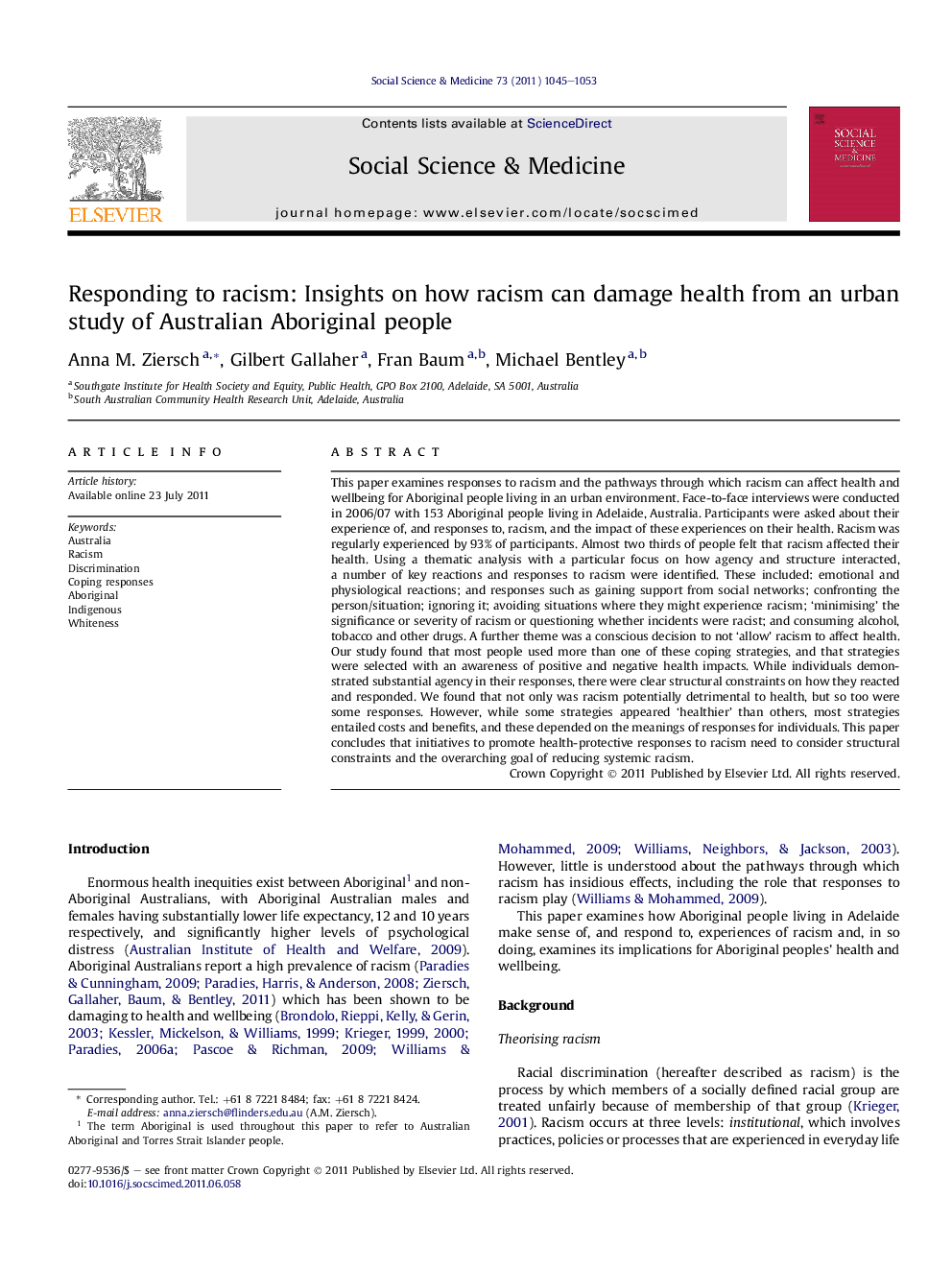| کد مقاله | کد نشریه | سال انتشار | مقاله انگلیسی | نسخه تمام متن |
|---|---|---|---|---|
| 952754 | 927538 | 2011 | 9 صفحه PDF | دانلود رایگان |

This paper examines responses to racism and the pathways through which racism can affect health and wellbeing for Aboriginal people living in an urban environment. Face-to-face interviews were conducted in 2006/07 with 153 Aboriginal people living in Adelaide, Australia. Participants were asked about their experience of, and responses to, racism, and the impact of these experiences on their health. Racism was regularly experienced by 93% of participants. Almost two thirds of people felt that racism affected their health. Using a thematic analysis with a particular focus on how agency and structure interacted, a number of key reactions and responses to racism were identified. These included: emotional and physiological reactions; and responses such as gaining support from social networks; confronting the person/situation; ignoring it; avoiding situations where they might experience racism; ‘minimising’ the significance or severity of racism or questioning whether incidents were racist; and consuming alcohol, tobacco and other drugs. A further theme was a conscious decision to not ‘allow’ racism to affect health. Our study found that most people used more than one of these coping strategies, and that strategies were selected with an awareness of positive and negative health impacts. While individuals demonstrated substantial agency in their responses, there were clear structural constraints on how they reacted and responded. We found that not only was racism potentially detrimental to health, but so too were some responses. However, while some strategies appeared ‘healthier’ than others, most strategies entailed costs and benefits, and these depended on the meanings of responses for individuals. This paper concludes that initiatives to promote health-protective responses to racism need to consider structural constraints and the overarching goal of reducing systemic racism.
► A qualitative study of responses to racism by Aboriginal people in urban Australia, about which little is known.
► Experience of racism was reported by the vast majority of participants and was seen as damaging to health.
► The range of responses reported demonstrated individual agency, as well as structural constraints on individuals.
► Some responses were seen as bad for health, but this depended on the meaning of these responses for individuals themselves.
► Concludes with the need to tackle the root causes of racism so that individuals will not have to cope with its impacts.
Journal: Social Science & Medicine - Volume 73, Issue 7, October 2011, Pages 1045–1053